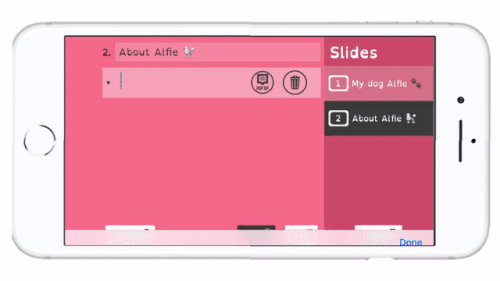How to beat Freshers' anxiety
Freshers’ Week has arrived! So what do you need in order to prepare for starting university? It can be daunting preparing yourself for this new experience especially if you suffer from anxiety but trust us it will be a whole lot of fun and worth the ride!
Here’s some of Estendio’s top tips for Freshers’ Week…
Now that you’re well equipped with some simple advice on how to manage your anxiety (and have a good time!), it’s now time to get down to the nitty gritty and the real reason you’re embarking on this new journey, your university course.
With new experiences come new challenges, but don’t worry you are not alone in facing these new hurdles, everyone is going through the same experiences (even if it doesn’t seem that way!).
We took it upon ourselves to speak to some bright eyed and bushy tailed students at last years Glasgow Uni’s Freshers Fayre (yes there was free pizza 🍕involved!). We conducted a short survey on what the top fears were for students starting university.
Let’s kick off with the results…
Students were given a list of the top 10 common challenges including financial problems and meeting deadlines. They were asked which they felt would be their biggest challenges. The top 4 results were as follows...
1. Balancing all commitments
2. Mental health
3. Note taking
4. Presentations
[Image Description: Number 1 Emoji Man Juggling ‘Balancing all commitments’, Number 2 Emoji Cloud ‘Mental Health’, Number 3 Emoji hand writing, Number 4 Emoji Woman with book in a classroom ‘Presentations’]
Balancing commitments can seem super challenging on the surface but the key to achieving a good balance is to make sure you’re not over-stretching yourself. Continually reassess what the priorities are, if you have a big exam coming up tomorrow it’s probably best to give yourself the evening to chill out and prepare for the exam to relieve any anxious feelings.
Image Description: A tower of stones balancing
Mental health when you are under more pressure then understandably it can be a concern that you may feel worried about your mental health and wellbeing, one thing that you can do to keep yourself in check is to focus on increasing your self-awareness.
If you can manage to find an effective way to balance your emotions and challenges whether that’s through exercise, writing, practicing mindfulness then you are on a great path already. Do remember there are people you can also talk to if you are in need of some professional advice, check with your student’s union to find out more about who you can speak with privately. There are also great charities such as the Student’s Mind that run student led blogs where you can read and share your experiences with each other.
Image Description: A neon sign saying ‘and breathe’ on a green foliage wall
Note taking is a worry for some students, as the speed of content delivery especially in lectures can be quite fast paced, and add to the stress of not being able to keep up. A way to manage this is to try to understand your learning style and be mindful of how you take notes during classes. Whether you have a visual, auditory, kinaesthetic/tactile or read/write learning style, the best note taking strategies for your learning style can easily be adopted. Change it up to fit your style, if you are more of a visual learner then using a method such as creating mind maps would definitely help you.
Image Description: A notepad with a pen on a wooden desk
How you can overcome presentation anxiety
Do you feel anxious about meeting deadlines or presenting in front of the class? Don’t worry you’re not alone, 81% of the study’s participants also said that they felt nervous about presenting to their classmates.
How can you overcome this?
Lots of practice will help over time, but if you do suffer from anxiety or a special learning difference (SpLD) such as Dyslexia then it can be difficult to retain the information easily or control your anxiousness during the presentation. A specific learning difficulty (SpLD) is a difference or difficulty with some particular aspects of learning. The most common SpLDs are Dyslexia, Dyspraxia, Attention Deficit Disorder/ Attention Deficit (Hyperactivity) Disorder, Dyscalculia and Dysgraphia.
There is support that can help you with this though. If you have a disability or a SpLD (Special Learning Difference) you can benefit from the Disabled Students Allowance (DSA), which means you could potentially access the Present Pal software as part of your grant.
As a dyslexic student, Chris from Estendio found he was struggling with oral presentations and started to seek to get support with this. After speaking with the Disabled Services at his university he was advised to seek a reasonable judgement which was to skip the presentation, but he wasn’t satisfied with this, he was frustrated that he couldn’t learn this core skill along with his classmates so he decided to take the matter into his own hands.
So, after a couple of years of development and hard work, he launched the Present Pal app. Present Pal is a presentation support software in the form of an app that helps you present more confidently by hosting interactive flashcards and allowing you to control your powerpoint slides at the same time. Features include; linear focus (helps you keep track of your place by magnifying the line of text), colour overlays, font picker (eliminates visual stress), pop up bubbles (access additional information). You can find out more about Present Pal here
How can you get Present Pal?
You can access the Present Pal app if you are receiving support from the Disabled Student’s Allowance grant by recommending the software to your assessor. You can also download the app to rehearse for presentations and for job interviews too. Present Pal has a monthly subscription cost of £4.99 per month (or £3.49 per month on an annual subscription).
What is the DSA?
The DSA is a grant that helps fund the extra essential costs you may have as a direct result of your disability, including a long-term health condition, mental-health condition or specific learning difficulties, such as dyslexia or dyspraxia. The grant can be used to help you buy any major items of specialist equipment. This can include software (such as Present Pal), printers/scanners, laptops/ personal computers, and ergonomic equipment. It can also help students with non-medical help and provide a basic allowance. The total maximum allowance that can be awarded is £27,405.
A recent article by the BBC stated that only 40% of students eligible for the DSA grant had heard of the grant before starting their course. Don’t worry if you have not applied for it yet, the application is still open, and you can apply for it even after you have started your course. You can find out more about the DSA here
The Disabled Student’s Allowance can be very beneficial to you and help to support a more independent learning experience throughout your university which will help you develop skills that will stay with you for life. A recent study noted that the DSA had a positive impact on students’ confidence of completing their course.
The Future
Being well versed at public speaking and oral presentations is not only super helpful during university but it will also help you succeed post university, as employers stated that oral communication is the #1 recruitment skill they look for in a potential recruit.
Remember you are not alone, everyone is experiencing these challenges at university too but now hopefully you are better equipped with the knowledge of how to overcome these potential challenges.
The most important thing is to have fun at Freshers, learn more about your university (get to know the campus) and get to grips with where you will be studying for the next 4 or 5 years! It’ll all be worth it in the end!


![[Image Description: Number 1 Emoji Man Juggling ‘Balancing all commitments’, Number 2 Emoji Cloud ‘Mental Health’, Number 3 Emoji hand writing, Number 4 Emoji Woman with book in a classroom ‘Presentations’]](https://images.squarespace-cdn.com/content/v1/55dd99e6e4b0efe2fb47a02e/1568819551868-U8SANSDZYMFML5LFK0PC/Top+Challenges+University+.png)








